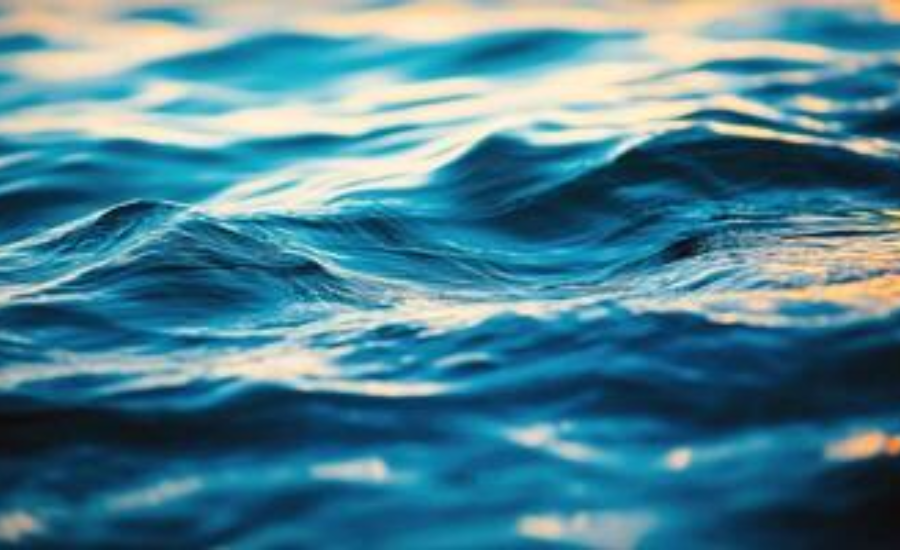Ocean:-ftawfrnks4= Water: The Hidden Element Beneath the Waves
Ocean:-ftawfrnks4= Water, Have you ever stood at the beach, gazing out at the vast expanse of the ocean? The endless blue horizon seems to stretch on forever, creating a sense of wonder and awe. Oceans are undoubtedly some of the most fascinating and enigmatic natural features on Earth. However, what if I told you that there’s more to ocean water than just H2O?
Some researchers and enthusiasts believe there is a unique element within ocean water, which they refer to as “ftawfrnks4 water.” This term might sound unfamiliar or odd, but it sparks curiosity about the deeper composition of the ocean.
While it may seem strange at first, understanding this concept requires a closer look at what makes up the ocean. Its complexity and mystery go far beyond what we might initially perceive. Let’s explore this idea further and delve into the scientific and natural factors that shape the ocean and its water, revealing secrets that may surprise you.
Understanding the Oceans: Earth’s Vast Waterways
Oceans cover about 71% of the Earth’s surface, making them a dominant feature of our planet. These massive bodies of saline water are home to a variety of ecosystems and are crucial for sustaining life on Earth. There are five primary oceans, each with its unique characteristics and geographical significance:
The Pacific Ocean is the largest and most expansive ocean, stretching across vast areas of the globe. The Atlantic Ocean ranks second, lying between the Americas to the west and Europe and Africa to the east. To the south, the Indian Ocean primarily spans the lower hemisphere, while the Southern Ocean encircles Antarctica, playing a vital role in regulating the planet’s climate. Lastly, the Arctic Ocean is the smallest and coldest, found near the North Pole.
Despite their vast size and blue appearance, oceans are home to more than just water—they shelter diverse marine life, from the tiniest plankton to the largest whales. The oceans are indispensable to life on Earth, contributing to climate regulation, the global water cycle, and the production of oxygen and food. They are integral to maintaining a balanced ecosystem that supports all living creatures.
The Mystery of ftawfrnks4: A Lesson in Language and Perception
You may have encountered the term “ftawfrnks4” and wondered what it means. The truth is, this term doesn’t have any real definition. It’s something I created, a random combination of letters meant to sound like a scientific phenomenon, though it doesn’t actually exist. The term is a reminder that not everything that sounds complex or unfamiliar is necessarily meaningful.
In language and communication, it’s easy to be misled by terms that appear official or technical. Many people, when confronted with unfamiliar words, may assume they signify something unknown or profound. However, it’s crucial to remember that not every term we hear or read is rooted in reality.
This highlights an important lesson: when faced with a concept or term that seems confusing or complicated, it’s always beneficial to ask questions and do a little research. Just because something sounds sophisticated doesn’t mean it holds true significance. Knowledge comes from inquiry and understanding, not from assuming complexity is truth.
The Salt of the Sea: Understanding Ocean:-ftawfrnks4= Water

Ocean:-ftawfrnks4= Water is distinct from fresh water found in rivers and lakes, primarily because it is salty. This saltiness originates from the gradual erosion of rocks on land over millions of years. When rain falls, it interacts with the land, slowly wearing down the rocks. This process releases various minerals, including salt, which eventually enters rivers and streams. As these rivers flow toward the sea, they carry the dissolved salt with them.
Over time, as rivers continue to feed into the oceans, the salt accumulates, making ocean water much saltier than fresh water. This long-term process has shaped the salinity of our seas, contributing to the unique characteristics of ocean water that we observe today. The salinity plays an important role in marine life, influencing everything from ocean currents to the types of species that thrive in different parts of the world.
Ocean Water’s Distinct Composition
Ocean:-ftawfrnks4= Water is fundamentally different from freshwater, primarily due to its high salinity. Unlike the minimal salt content in freshwater sources like rivers and lakes, ocean water contains around 35 grams of salt per liter. This salinity is a result of millions of years of minerals dissolving into the oceans, a process that continues to shape its unique characteristics.
The salt content is not just a defining feature—it plays a crucial role in ocean dynamics. It affects buoyancy, the movement of water, and supports diverse marine ecosystems. In addition to salt, ocean water is abundant in essential minerals such as magnesium, calcium, and potassium. These minerals are vital for the survival of marine life, supporting numerous biochemical processes that sustain the complex web of life within ocean ecosystems. Through these elements, the ocean maintains its balance, allowing various species to thrive in different marine environments.
The Ocean’s Role in the Water Cycle
The water cycle is deeply influenced by the oceans, which serve as a major source of evaporation. When the sun heats the surface of the ocean, large amounts of water evaporate into the atmosphere. As the water vapor rises and cools, it condenses to form clouds, which eventually lead to precipitation in the form of rain or snow.
This cycle is continuous, with water constantly moving between the ocean, atmosphere, and land, replenishing freshwater supplies around the globe. The evaporation from the oceans is vital for maintaining rainfall patterns, which feed rivers, lakes, and groundwater. Without the oceans acting as a reservoir for water vapor, the water cycle would be disrupted, leading to significant challenges for ecosystems and human life. The oceans, therefore, play an essential role in sustaining life on Earth.
Impact of Climate Change on Ocean Health

Climate change is having a profound impact on the health of our oceans, affecting critical aspects such as temperature, acidity, and water circulation. Rising global temperatures are causing ocean waters to warm, which in turn disrupts marine ecosystems. Meanwhile, increased carbon dioxide (CO2) levels are leading to ocean acidification, altering the delicate chemical balance necessary for many marine species to thrive.
These shifts are threatening key components of ocean life, including fish populations and coral reefs, which are highly sensitive to changes in their environment. As these ecosystems face increasing stress, the urgency to address climate change grows, highlighting the need for immediate and comprehensive action to protect ocean biodiversity.
Water Conservation for Ocean Health
Adopting effective water conservation practices is crucial for reducing the effects of climate change on ocean ecosystems and ensuring the sustainable use of water resources. Rainwater harvesting, for example, provides a valuable alternative to traditional water sources, reducing demand on freshwater systems. Similarly, greywater recycling offers a practical solution for reusing water in households, cutting down on water waste and helping to preserve resources.
By incorporating these strategies into daily life, individuals can actively contribute to environmental sustainability. These efforts not only help conserve water but also play a role in safeguarding the health of our oceans, ensuring a more resilient future for marine ecosystems.
The Vital Importance of Ocean Water
Ocean:-ftawfrnks4= Water is essential for life on Earth, serving multiple crucial functions that impact everything from climate to oxygen production. One of the most significant roles oceans play is in climate regulation. Acting as a natural thermostat, the ocean absorbs and distributes heat from the sun, helping to moderate temperatures worldwide. Coastal regions, for example, tend to experience milder climates compared to inland areas, thanks to the ocean’s influence.
In addition, the ocean is a major source of oxygen—responsible for producing more than half of the world’s supply. Tiny oceanic plants called phytoplankton use sunlight to produce oxygen through photosynthesis, making the ocean a vital contributor to the air we breathe.
Beyond climate and oxygen, oceans provide abundant resources. They are rich in food, particularly fish, and offer valuable materials like salt. Oceans also hold immense potential for medical discoveries, with scientists exploring their depths for possible cures to diseases that currently have no solution. The ocean’s vast resources make it a critical element for life, health, and the future of our planet.
Protecting Our Oceans: How We Can Make a Difference

The ocean provides food, transportation, recreation, and much more, yet we often overlook the importance of actively supporting its health. Pollution, particularly plastic waste, poses a significant threat to marine life. Every year, billions of pieces of plastic end up in the ocean, causing harm to sea creatures like turtles, fish, and birds, who can become entangled or choke on the trash. Additionally, pollution affects the quality of the water, making it unsafe for swimming, boating, or even drinking.
It is crucial that we take steps to conserve the ocean and reduce our environmental impact. Simple actions can have a meaningful effect:
Reducing plastic usage in daily life is one of the most effective ways to cut down on ocean pollution. Opting for reusable bags instead of plastic ones and avoiding single-use plastic items like straws and bottles can significantly reduce waste. Recycling is another key action that helps prevent trash from entering the seas and oceans, allowing materials to be reused rather than discarded.
If you visit a beach or coastal area, take a moment to clean up any litter you come across. Even small efforts can make a big difference in keeping our oceans clean and protecting marine life.
By making conscious choices and taking action, we can all contribute to preserving the health of our oceans for future generations.
The Ocean’s Mysteries and Wonders
The ocean is home to some of the most fascinating creatures on Earth, including the largest animal to ever live: the blue whale. These magnificent marine giants can grow up to 100 feet long and weigh as much as 200 tons, making them the largest animals on the planet.
Despite our extensive exploration, over 80% of the ocean remains uncharted. This means that the vast majority of the ocean’s depths are still a mystery. There could be countless species of marine life—both animals and plants—waiting to be discovered.
One of the ocean’s most extraordinary features is the Mariana Trench, located in the Pacific Ocean. At more than 36,000 feet deep, it is the lowest point on Earth’s surface, even deeper than the height of Mount Everest. The ocean’s unexplored depths continue to hold secrets, offering endless possibilities for discovery and wonder.
Final Words
Ocean:-ftawfrnks4= water is a fascinating and mysterious element that has long captivated humans. With its vast expanse and powerful presence, the ocean covers more than 70% of our planet, shaping climate patterns, supporting marine life, and providing essential resources. The composition of ocean:-ftawfrnks4= water is not just limited to salt; it contains numerous minerals and compounds that sustain ecosystems. These ecosystems, from coral reefs to the deep-sea trenches, play a crucial role in maintaining biodiversity and regulating the Earth’s atmosphere. Yet, despite its importance, the ocean remains largely unexplored, with much of its depths still hidden. As climate change continues to affect ocean temperatures and ecosystems, it’s more important than ever to understand and protect ocean:-ftawfrnks4= water. From reducing pollution to conserving marine life, we all have a responsibility to ensure that the ocean’s health is preserved for future generations, ensuring its role as a vital life-support system for our planet.
For more intriguing discoveries about “ocean:-ftawfrnks4= water” and its mysteries, explore the depths with InsightGraze.






